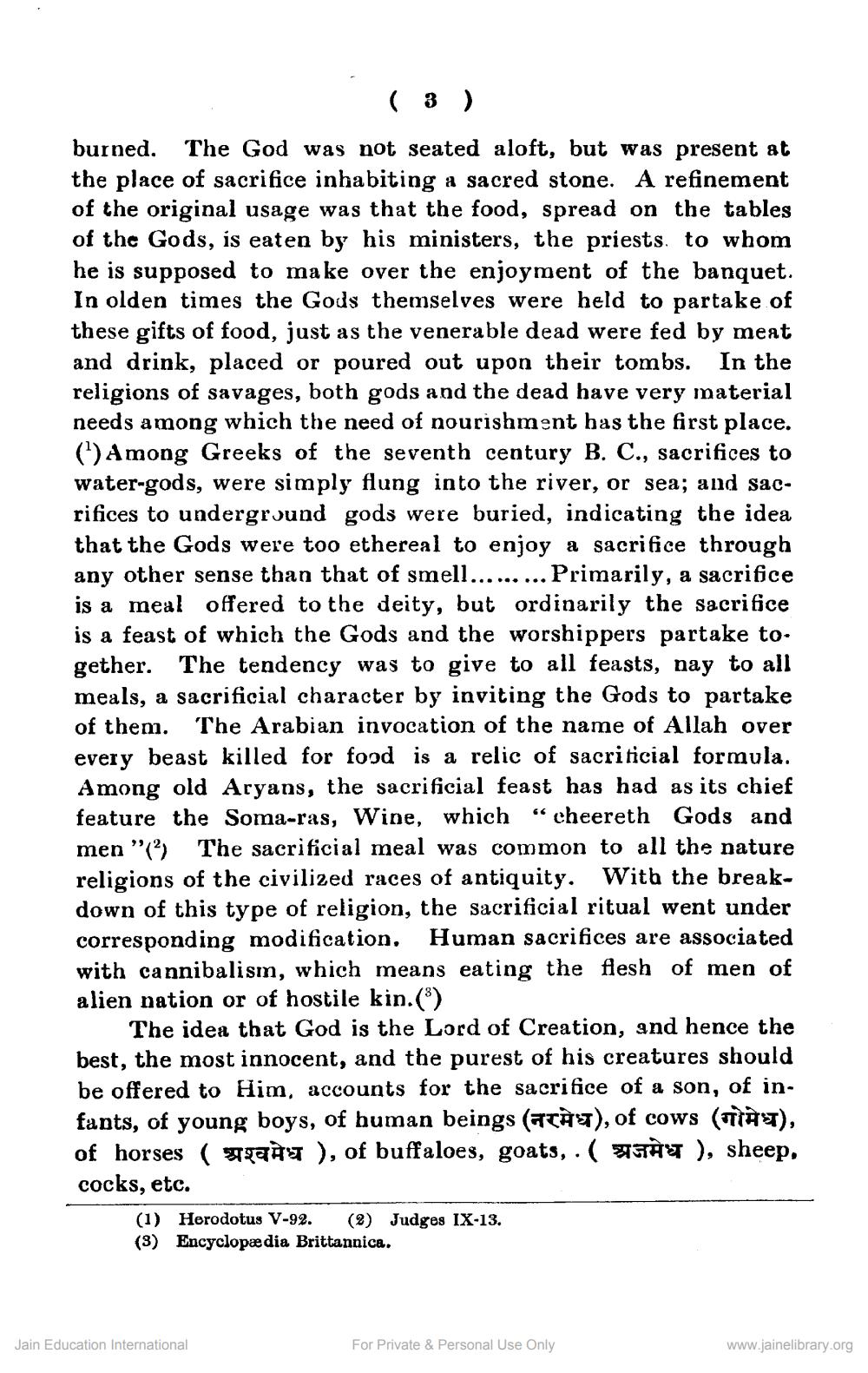________________
burned. The God was not seated aloft, but was present at the place of sacrifice inhabiting a sacred stone. A refinement of the original usage was that the food, spread on the tables of the Gods, is eaten by his ministers, the priests. to whom he is supposed to make over the enjoyment of the banquet. In olden times the Gods themselves were held to partake of these gifts of food, just as the venerable dead were fed by meat and drink, placed or poured out upon their tombs. In the religions of savages, both gods and the dead have very material needs among which the need of nourishment has the first place. (1) Among Greeks of the seventh century B. C., sacrifices to water-gods, were simply flung into the river, or sea; and sacrifices to underground gods were buried, indicating the idea that the Gods were too ethereal to enjoy a sacrifice through any other sense than that of smell...... ... Primarily, a sacrifice is a meal offered to the deity, but ordinarily the sacrifice is a feast of which the Gods and the worshippers partake to. gether. The tendency was to give to all feasts, nay to all meals, a sacrificial character by inviting the Gods to partake of them. The Arabian invocation of the name of Allah over every beast killed for food is a relic of sacrificial formula. Among old Aryans, the sacrificial feast has had as its chief feature the Soma-ras, Wine, which “cheereth Gods and men (2) The sacrificial meal was common to all the nature religions of the civilized races of antiquity. With the breakdown of this type of religion, the sacrificial ritual went under corresponding modification, Human sacrifices are associated with cannibalism, which means eating the flesh of men of alien nation or of hostile kin.(8)
The idea that God is the Lord of Creation, and hence the best, the most innocent, and the purest of his creatures should be offered to Him, accounts for the sacrifice of a son, of infants, of young boys, of human beings (ATA), of cows (TIA), of horses ( aÀY ), of buffaloes, goats, . ( E N ), sheep, cocks, etc.
(1) Herodotus V-92. (2) Judges IX-13. (3) Encyclopædia Brittannica.
Jain Education International
For Private & Personal Use Only
www.jainelibrary.org




